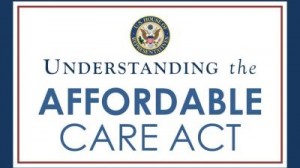Confused? Don’t worry – The Andrew Agency is ready to help.
Applications for the Federally-facilitated Marketplaces may be submitted through:
- The Federally-facilitated Marketplace portal
- Navigators or certified application counselors
- The Federally-facilitated Marketplace toll-free call center, which offers services in 150 languages
- The mail, by individuals
Overview of Affordability Programs
Under the Affordable Care Act, millions of Americans will be eligible to purchase affordable health coverage through Marketplaces. Enrollments will start in October 2013 with an effective date of January 1, 2014.
The Affordable Care Act also provides opportunities for many individuals to reduce the cost of health insurance coverage through premium tax credits and cost-sharing reductions for eligible enrollees. The tax credits may be paid directly to insurance companies on behalf of individuals and families.
The application process that Marketplaces will use as a result of the Affordable Care Act will make it easy for individuals, and the agents and brokers who assist them, to determine if they are eligible for the premium tax credit or cost-sharing reductions.
Advance Payment of the Premium Tax Credit
The premium tax credit is a new income tax provision to help individuals and families afford health insurance coverage purchased through a Marketplace.
An individual may choose to apply some or all of the tax credit towards QHP premiums costs on an advance basis – with reconciliation at the end of the year – or to receive the credit on his or her federal tax return filed for the coverage year.
Advance payments of the premium tax credit are paid directly to the insurance company offering the QHP on a monthly basis. The income tax return for the coverage year will reconcile any advance payments of the premium tax credit with the premium tax credit allowed on the return. The Marketplace will provide documentation to the tax filer and to the IRS that will support the reconciliation process in the same way that an employer or bank provides a Form W-2 or Form 1099.
Individuals eligible for a premium tax credit who do not receive an advance payment of the premium tax credit may claim the credit on their income tax return filed for the coverage year.
Cost-sharing Reductions
Cost-sharing reductions are subsidies that reduce the amount of out-of-pocket expenses, such as deductibles or coinsurance, an individual is responsible for as part of their coverage under a QHP.
Some individuals who are eligible for tax credits are also eligible for cost-sharing reductions, depending on income, as determined by their modified adjusted gross income (MAGI).
Depending on an individual’s specific circumstances, the Marketplace may verify the information, from the following sources, to conduct the verification process:
- Social Security Number (SSN)
- Residency data
- Citizenship status (SSA and Department of Homeland Security [DHS])
- Immigration status (DHS)
- American Indian or Alaska Native status
- Household size (IRS)
- Household income (IRS, SSA, Equifax, potentially other sources)
- Access to other coverage (Medicaid, CHIP, Medicare, TRICARE, Department of Veterans Affairs, Peace Corps, other Marketplaces, the SHOP, and potentially other sources)
Enrollment Periods
After their eligibility has been determined, individuals may enroll in a QHP during various timeframes throughout the year. The three timeframes are the initial open enrollment period, the annual open enrollment period, and special enrollment periods (SEP).
- The initial open enrollment period begins October 1, 2013 (before the Marketplaces first make coverage available on January 1, 2014), and continues through March 31, 2014.
- The annual open enrollment period is between October 15 and December 7 each year, beginning in 2014.
- SEPs occur throughout the year, based on individuals’ special circumstances.











